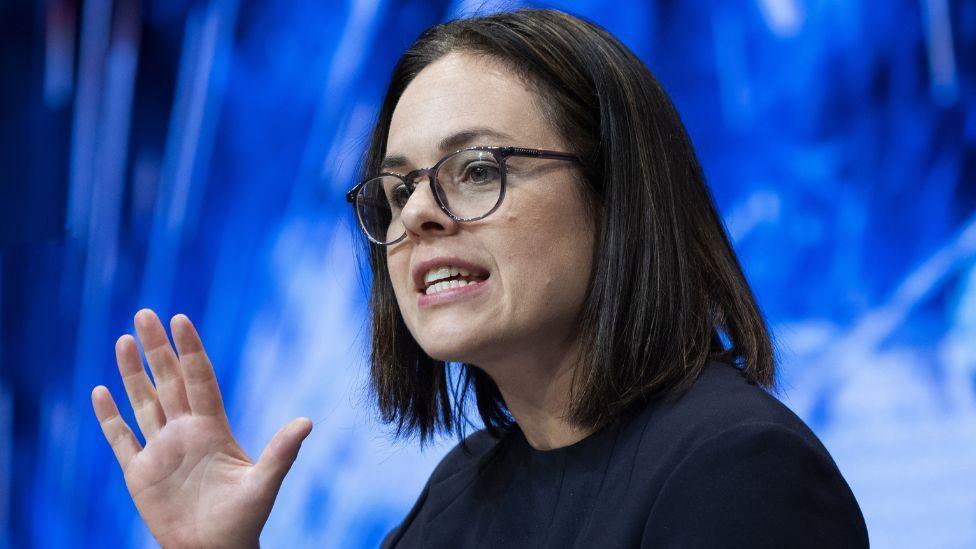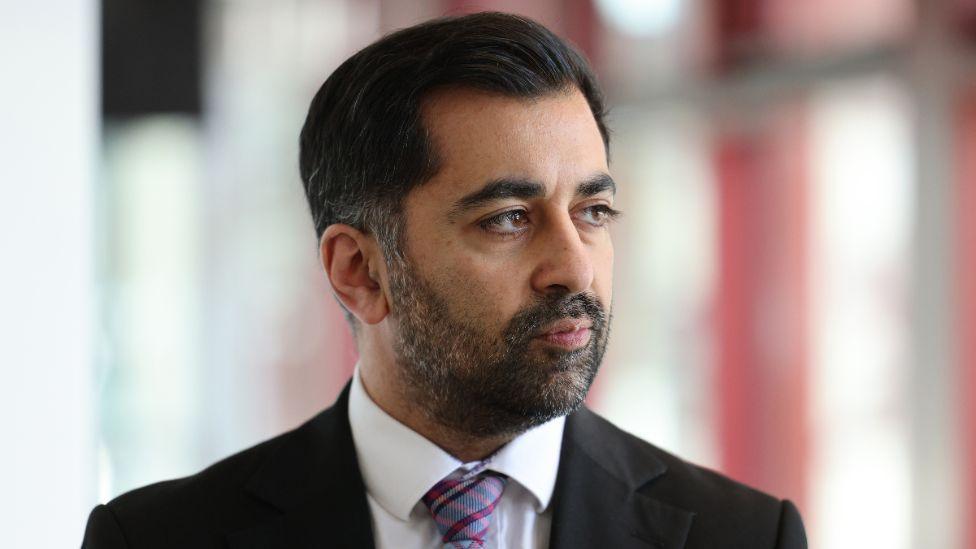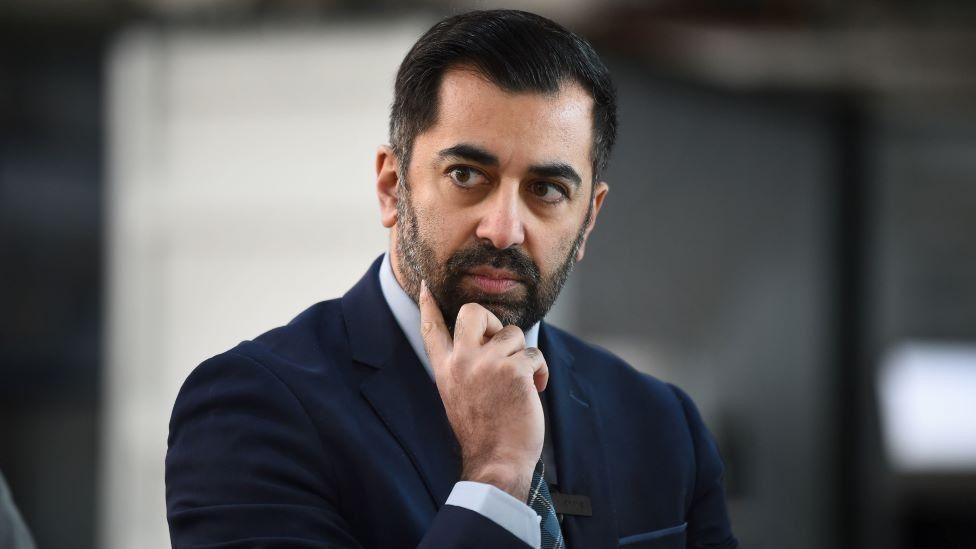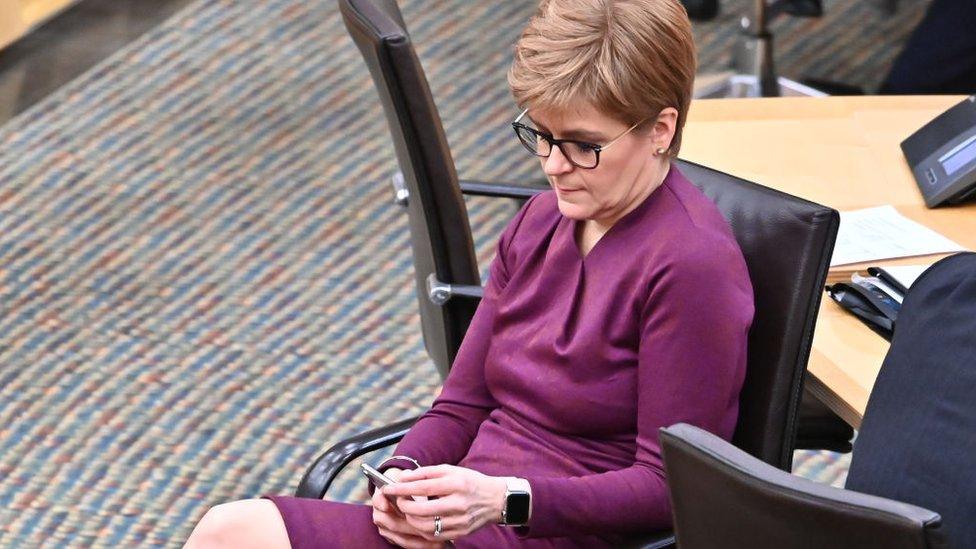Government to ban WhatsApp for official business

Deputy First Minister Kate Forbes announced the government's response in a speech to the Scottish Parliament
- Published
Scottish government ministers and staff are to be banned from using WhatsApp for official business.
Deputy First Minister Kate Forbes made the announcement in response an external review into the use of messaging services.
It came after The UK Covid inquiry revealed officials and ministers had deleted WhatsApp messages exchanged during the pandemic.
Forbes said her government was committed to "standards of openness, transparency, and accountability".
She said the use of WhatsApp or any other "non-corporate" messaging services for government business would end from spring next year.
"Government business should happen on government systems which are secure, searchable and allow the appropriate sharing of information, in line with our statutory duties," Forbes said in a statement to parliament.
MSPs were told non-corporate messaging apps will be removed from devices, and the "technical environment" configured, so that they cannot be used on government devices.
Forbes said ministers and staff should use corporate-approved apps, such as Teams and email, and personal phones should not be used for official business.
'Pressing times'
The deputy first minister told parliament the use of WhatsApp and other messaging apps during the pandemic was "understandable in such pressing times".
The Scottish government's policy on mobile messaging applications states that any material relevant to decisions has to be recorded on the corporate record.
Forbes said government figures acted in line with that policy, but that they had "reflected" on the policy in hindsight.
Scottish Conservative MSP Sandesh Gulhane said the announcement was a "clear admission" that what ministers and officials did during the pandemic was wrong.
He urged the government to introduce an immediate ban on the use of WhatsApp.
Gulhane also accused ministers of breaking the ministerial code by failing to give advance sight of the statement.
Scottish Labour's Daniel Johnson accused government figures of editing and removing information that should have been on the public record during the pandemic.
Former First Minister Humza Yousaf announced a review into the use of WhatsApp and other messaging services in March.

Humza Yousaf ordered an external review of the government's messaging policy
The external review looked at the use of WhatsApp and personal devices to conduct government business.
It was led by former Channel Islands data protection commissioner Emma Martins.
Her report, which was delivered to the government last month, was published alongside Forbes' statement to parliament.
The report found there was "little to evidence a consistent and widespread knowledge, understanding, or application" of mobile messaging apps, "including rules around retention, exportation, and deletion".
The Scottish government's policy required ministers and officials to transcribe "salient" points from business discussions on mobile messaging apps
Ms Martins said: "In the absence of any information about how much or how often such transcribing took place, it is impossible to take any comfort from the policy."
While she acknowledged the "unprecedented challenges" of the pandemic could lead to the circumvention of some government rules, she said it was not "acceptable" for changes to procedures to remain in place "without proper scrutiny and review".

Nicola Sturgeon defended her record keeping during the pandemic
The Covid inquiry heard that several Scottish government figures, including Nicola Sturgeon and John Swinney, deleted messages that referred to government business during the pandemic.
Sturgeon and Swinney were accused of "industrial scale" deletion of messages by opposition parties but said any "salient" points were recorded on the corporate record and only informal messages were deleted.
Other Scottish government ministers - including Forbes, who served as finance secretary during the pandemic - said they had retained their WhatsApp messages.
The UK government was also criticised over its record-keeping, with former Scottish Secretary Alister Jack telling the inquiry he had deleted all of his messages to create memory space on his phone.
The Scottish Information Commissioner, who oversees freedom of information laws, also launched a review into how officials and ministers use and retain informal communications.
The official watchdog said the Covid inquiry had raised "significant practice concerns" over how ministers used messaging services such as WhatsApp.
- Published4 February 2024

- Published21 January 2024
